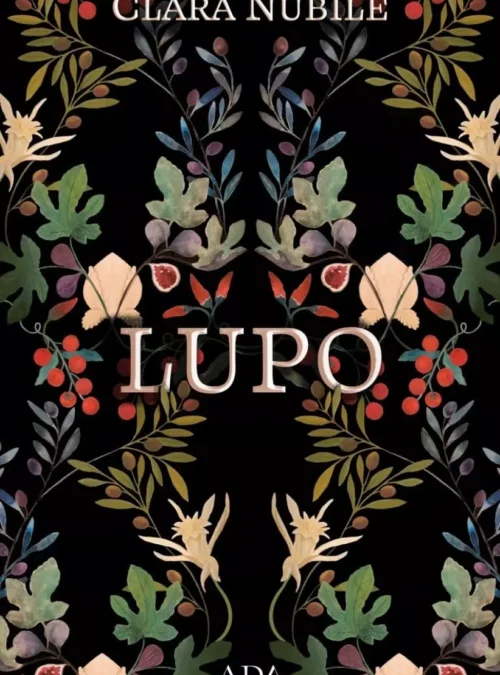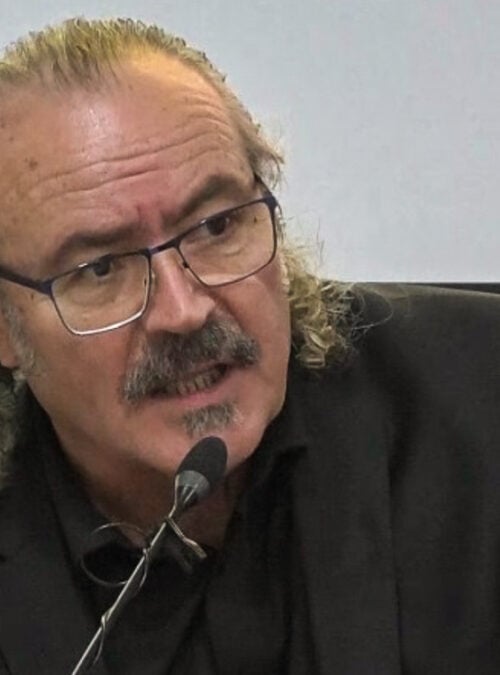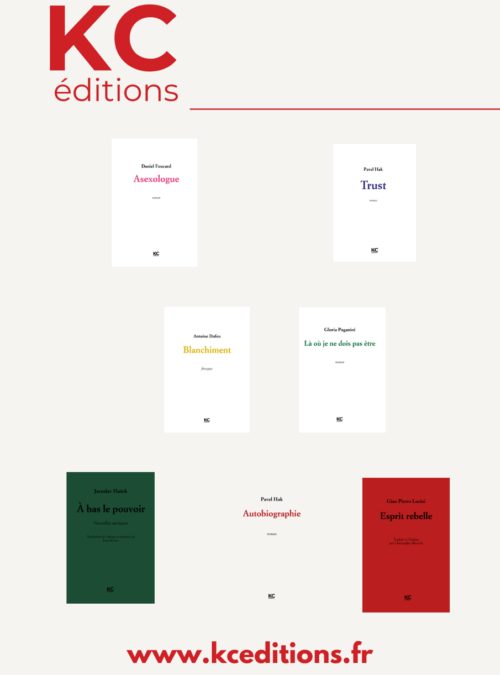Interview with Tiziano Cancelli (Mercurio Books)
Author: Laura Pugno

In its interview column, newitalianbooks has decided to highlight new publishing companies on the Italian scene. In this episode, we are joined by Tiziano Cancelli, creator and founder, together with a quartet of partners, of the new Mercurio Books brand.
We ask him, “How would you describe the publishing project of the new Mercurio publishing house and its identity to readers of newitalianbooks abroad?”
Mercurio Books was founded in 2024 and boasts publishing professionals such as Matteo Trevisani, Antonio Sunseri, Simone Caltabellota and Francesco Pedicini among its partners. The project takes its name from the messenger of the gods: just as Mercury travels between worlds and dimensions, so our publishing house transports readers to uncharted territories.
Mercurio Books seeks to answer a question I have asked myself many times during my career as a reader and professional: when was the last time I felt such a strong desire to return to the pages of a book that it made me want to stop what I was doing? This question has been the starting point for all our choices. The driving force behind the project was, and still is, to rediscover that fruitful emotion, the eagerness to engage with stories capable of creating a community, of rekindling a spark of magic amid the disillusionment of the present day. Mercurio Books is and wants to continue to be a collective ritual that aims to broaden its audience through the publication of books that seek a view of the world that I like to define as oblique. What seduces us is a perspective that contains within it a particular attention to writing, voice and stories.
The image that holds all our aspirations together is that of the threshold: crossing the boundaries between literary genres and styles, but also inhabiting a space that is by its very nature changeable and slippery. What’s more, we felt that the stigma attached to the genre was a waste of energy, so we took a gamble and focused on what appeared to be a space left vacant by Italian publishing. The challenge is to find, publish and disseminate so-called Literature with a capital L, even within unconventional narratives, which more easily allow themselves to flirt with literary genres.
Mercurio‘s stories are based on three pillars: literary quality, contemporaneity (not in a purely chronological sense, but in terms of the ability to dialogue with the present) and emotion. As readers, we know that we have often encountered these characteristics in surprising ways, that is, outside of labels or categorisations.
And then we wanted the beauty of the object, the attention to aesthetics, entrusted to art director Francesca Pignataro: this translates into a constant study of the brand’s visual identity and meticulous research for the covers. Whether we like it or not, our covers are a constant dialogue between modernity and antiquity.
Mercurio Books was launched in May 2024 with three titles. The first was Maeve by CJ Leede, translated by Gaja Cenciarelli, a shocking, gory debut set in Los Angeles, an American Psycho capable of recounting the female rage of our age. Wish I was here by M. John Harrison, translated by Luca Fusari, is an anti-memoir on the relationship between memory and writing by one of the great masters of the new weird. Finally, The Other Valley by Scott Alexander Howard, translated by Veronica La Peccerella, is speculative fiction that reflects on destiny, time and free will.
During its first year, Mercurio Books published masters of fantasy and neo-Gothic fiction, such as Michael Cisco with The Divinity Student, translated by Viola Di Grado, Kelly Link, finalist for the Pulitzer Prize in 2016, with The Book of Love, translated by Claudia Durastanti, and Michael Swanwick with The Iron Dragon’s Daughter, translated by Susanna Bini. It has been particularly exciting to bring voices to our shelves that were previously unpublished in Italy: from CJ Leede and Scott Alexander Howard to Temim Fruchter, Henry Hoke and Laura van den Berg.
In 2025, Mercurio aims to publish twice as many titles as in its launch year. Until September, the catalogue included Bram Stoker Award winner Caitlín R. Kiernan with The Drowning Girl, translated by Milena Sanfilippo, the return of CJ Leede with American Ecstasy, translated by Gaja Cenciarelli, and Honor Levy, a young writer about whom Bret Easton Ellis wrote: “She reminded me of when Norman Mailer reviewed me with: ‘My God, I am seeing the voice of new literature’”, with her collection of short stories My First Book, translated by Chiara Manfrinato. And then there is Isabella Nagg and the pot of Basil by Oliver Darkshire, translated by Marta Olivi, a cosy fantasy that is also enjoying great success with the Italian public.
Autumn is our favourite season, when titles we immediately fell in love with will be released. In mid-October, we will publish the first volume of Matt Dinniman’s cult Lit-RPG series, Dungeon Crawler Carl, translated by Federico Nejrotti. Between self-publishing, audiobooks and hardcover editions, the series has sold three million copies worldwide and has been optioned for a television series. At the end of October, Victorian Psycho by Virginia Feito, translated by Clara Nubile, will be released, destined to become a modern classic of the gothic thriller, soon to be made into a film.
In recent months, our attention has also turned to Italian authors, thanks to unsolicited submissions to the editorial office and constant monitoring of new voices by editorial director Matteo Trevisani. This year at the Salone, our first Italian author, Matteo Cardillo, made his debut with Amarsi in una casa infestata (Loving Each Other in a Haunted House): a novel that brings the archetype of the haunted house to the heart of the contemporary world, telling the story of a generation that sustained by love and ghosts.
In 2026, we will continue to publish Italian authors with Jacopo Iannuzzi, winner of the Calvino Prize with White People Rape Dogs (Einaudi, 2024), with his second novel: Re corallo (Coral King), a book about war and its meaninglessness, about friendship and feeling outside of history. It is a courageous tale about the search for truth even when the possibility of a future has been snatched away from you. We like to describe it as the Heart of Darkness of our generation.
In September 2025, we decided to embark on a new project and inaugurated our cultural hub Mercurio Pigneto in Rome, created in the editorial office, where we devote ourselves to our books every day. This was perhaps the aspect that was missing from our initial reflections: if we can no longer tell stories around the fire, we can continue to do so in the heart of the Pigneto neighbourhood, in an environment that combines the desire to meet readers in person, through events and festivals, with experimentation in food and beverage.
We do not know what world this threshold will open onto next, but we are sure that the journey with Mercurio will continue to be unforgettable.










